Our Grants
Our Grants Support Healthy Outcomes
Funding research that matters
Treatment
We help improve access to quality care and effective treatment of obesity by eliminating policy, societal, economic and medical barriers.
Research
We help end the obesity epidemic by sponsoring scientific research grants regarding bariatric surgical procedures and improvement of post surgical outcomes.
Education
We work to increase awareness and understanding of obesity by educating the public on the prevention and treatment options available.
Grantee Spotlight
Meet the people making the breakthroughs

“Data from this work should help provide direction for both medical weight loss physicians as well as bariatric surgeons to better advise patients and make recommendations on using GLP-1 agonists after surgery.”
Andrew Wheeler, MD Recipient of the 2023 Research Grant
Study Biometabolic Impact of Continuation of GLP-1 Agonists Following Bariatric Surgery: A Randomized Control Trial.
Currently Dr. Wheeler is at the University of Missouri, Columbia, MO. My academic clinical practice focuses on comprehensive weight management. I have a particular clinical interest in maximizing the effectiveness of metabolic surgery using combined medical and surgical therapy before and after surgery.
ASMBS Research Grants
Funded by TREO Foundation
TREO Foundation is working with ASMBS to solve the obesity problem by sponsoring scientific research grants concerning bariatric surgical procedures and improvement of post surgical outcomes.
2023
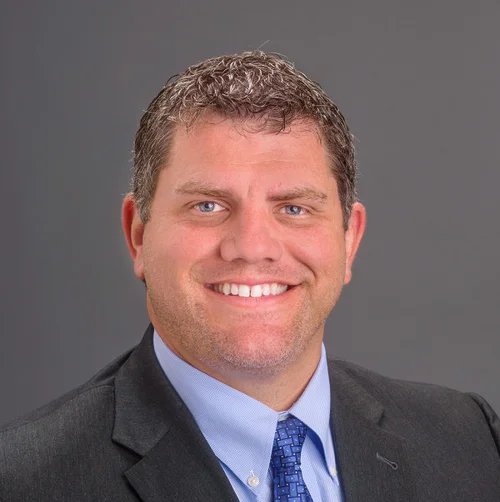
Andrew Wheeler, MD,
Milot Thaqi, MD
Biometabolic Impact of Continuation of GLP-1 Agonists Following Bariatric Surgery: A Randomized Control Trial.
Glucagon-like peptide 1 (GLP-1) is a hormone that helps regulate blood glucose levels through improved insulin sensitivity and release of insulin from the pancreas, control hunger, induce satiety and plays a role in the metabolic health of a person. GLP-1 receptor agonists (GLP1-RAs) have been shown to be effective in achieving weight loss in patients with type 2 diabetes while improving blood glucose control. Bariatric surgical procedures have been shown to be effective in treating obesity as well as superior to best medical therapy for treatment of diabetes. Bariatric surgery has been shown to be effective in helping people with obesity lose weight and improve their health not just through restriction of calories but also through a positive impact in modifications of gut hormones, changes in circulating bile acids, modifications in the gut microflora as well as other undefined mechanisms. The combined benefits of GLP1-RAs with bariatric surgery have only been studied to a limited effect. In this randomized trial, the effects of continuation or discontinuation of GLP1-RA therapy in patients undergoing bariatric surgery will be determined.
2023

Thomas Shin, MD, PHD,
Eric G. Sheu, MD, PhD,
Ali Tavakkoli, MD
Spatial Transcriptomics Reveals Oncoprotective Effect of Bariatric Surgery Against Breast Cancer.
While associations between weight gain and canonical pro-carcinogenic factors such as increased inflammation and metabolic derangements have been drawn[1–5], increasing attention is now drawn to the protective effects of weight loss interventions against development of malignancies[6–11]. As one of the most powerful tools to attain durable weight loss, bariatric surgery has become of greater interest as an intervention against cancers involving endocrine and metabolomic homeostasis, such as breast cancer where bariatric surgery confers up to a 37% risk reduction of breast cancer[12–18]. However, current literature exploring the relationship between breast cancer and weight loss has been retrospective human and small-scale mouse syngeneic graft studies without a focused delve into tumor microenvironment changes and surrounding breast stroma; limiting their generalizability and ability to conclude causality[12, 15, 16].
2022
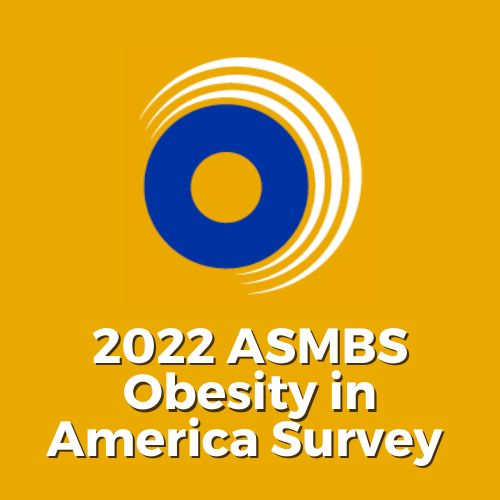
2022 ASMBS Obesity in America Survey
The survey explored public perceptions of obesity and its treatment amid the COVID-19 pandemic. Researchers hypothesized that the American experience with COVID-19 would change the public’s views and behaviors on obesity, which emerged as a major risk factor for severe outcomes from COVID.
We are excited to report that the second ASMBS Obesity in America Survey, sponsored by the ASMBS Foundation, soon-to-be TREO Foundation, has been published in SOARD and over the last few weeks, has been the focus of news stories in US News & World Report, HealthDay, UPI, News Medical, Bariatric News and many others.
The survey explored public perceptions of obesity and its treatment amid the COVID-19 pandemic. Researchers hypothesized that the American experience with COVID-19 would change the public’s views and behaviors on obesity, which emerged as a major risk factor for severe outcomes from COVID.
Among the Key Findings
- Nearly a third of Americans said COVID-19 made them more worried than ever about having obesity, prompting 6.4 million to consider treatment with bariatric surgery and anti-obesity medications for the first time in their lives.
- Obesity was considered the biggest health threat facing the country, as big as cancer and even more of a threat than heart disease, diabetes, and COVID-19.
- Misperceptions persist about the best methods for long-term weight loss with nearly 75% thinking dieting and exercise alone was the most effective, even more so than involving a doctor (65%) or having bariatric and metabolic surgery (56%).
The survey shows public awareness and concerns over the dangers of obesity have never been higher. However, once the pandemic is long over, the disease of obesity will continue to exist in epidemic proportions if we don’t act, which is why your continued support is so vital. We must turn this new consideration of bariatric treatment into action – and the time is now!
Our partnership with ASMBS remains strong, and together with our donors, we will fuel the change we seek. Visit www.TREOFoundation.org to learn how you can help transform the landscape of obesity treatment.
Healthy Regards,
Carl Pesta, DO
President, ASMBS Foundation
2022

Vance Albaugh, MD, PhD
Functional Brain Imaging Characterization of Weight Regain and Weight Loss Maintenance Patients following Metabolic/Bariatric Surgery
Metabolic and bariatric surgery (MBS) is the most effective obesity treatment, though the mechanisms underlying its marked weight loss compared to dietary/behavioral approaches remain unclear. Despite its efficacy, however, weight regain can occur. Although weight regain can result from anatomic failure (e.g. gastro-gastric fistula), regain is typically multifactorial (e.g. environment, behavioral stressors, new diagnoses). Surgical treatment for weight regain is increasing1, but understanding weight regain physiology and how surgical treatment alters that physiology remains poorly understood. Better understanding of weight regain physiology and MBS treatments remains critically important.
2021

Lisa R. Matero, MD, PhD, ABPP
Cannabis Use after Bariatric Surgery
To reveal whether patients who undergo bariatric surgery are at increased risk for developing a post-surgical cannabis use disorder and will also shed light on whether cannabis use affects post-surgical weight loss and medical comorbidities. To guide programmatic recommendations and monitoring to help optimize outcomes for patients pursuing bariatric surgery and to support future grant applications including identifying distal and proximal predictors of cannabis use, as well as, development of technology-based interventions to reduce substance use and problematic eating behaviors to optimize weight loss outcomes.
2021

Arthur Carlin, MD, FACS, FASMBS
Cannabis Use after Bariatric Surgery
To reveal whether patients who undergo bariatric surgery are at increased risk for developing a post-surgical cannabis use disorder and will also shed light on whether cannabis use affects post-surgical weight loss and medical comorbidities. To guide programmatic recommendations and monitoring to help optimize outcomes for patients pursuing bariatric surgery and to support future grant applications including identifying distal and proximal predictors of cannabis use, as well as, development of technology-based interventions to reduce substance use and problematic eating behaviors to optimize weight loss outcomes.
2019

Alfredo D. Guerron, MD
Short-Term Impact of Bariatric Surgery on Systemic Inflammation in Obese Asthma
To not only elucidate the immediate benefits of bariatric surgery in asthma but also achieve important insights that can better aid understanding of the mechanism by which these procedures improve the disease in obese patients.
2019
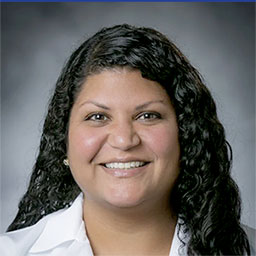
Kunoor Jain-Spangler, MD
Short-Term Impact of Bariatric Surgery on Systemic Inflammation in Obese Asthma
To not only elucidate the immediate benefits of bariatric surgery in asthma but also achieve important insights that can better aid understanding of the mechanism by which these procedures improve the disease in obese patients.
2017

Jayleen Grams, MD
Skeletal health and bariatric surgery patients
To understand the metabolic and microbiome differences between obese patients with metabolic syndrome and healthy obese patients.
2017
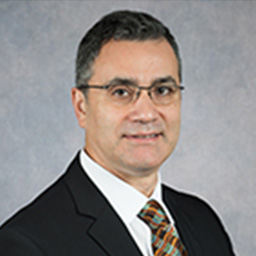
Michel Murr, MD
RYGB Improves Insulin Resistance via Sirt-1 and Gas5
The liver plays a central role in obesity-induced insulin resistance and normalization of blood glucose in the immediate period following RYGB. We sought to understand the genetic pathways which underlie resolution of insulin resistance and blood glucose levels.
2016

Lauren Bradley, PhD
The Investigation of a Remotely-delivered Behavioral Intervention for Postoperative Weight Regain
The objective of the study is to evaluate a newly developed Internet-delivered (via e-learning modules) acceptance-based behavioral intervention (ABTi) for individuals who are experiencing weight regain post-surgery. We are assessing ABTi’s efficacy on stopping and/or reversing weight by comparing it to a wait-list control (WLC) condition. We are also evaluating its effect on targeted weight control behaviors and acceptance-based skills. Finally, we are examining the relationship between weight outcomes and changes in process variables through exploratory analyses.
2016

Alfonso Toquati, MD
The Investigation of a Remotely-delivered Behavioral Intervention for Postoperative Weight Regain
The objective of the study is to evaluate a newly developed Internet-delivered (via e-learning modules) acceptance-based behavioral intervention (ABTi) for individuals who are experiencing weight regain post-surgery. We are assessing ABTi’s efficacy on stopping and/or reversing weight by comparing it to a wait-list control (WLC) condition. We are also evaluating its effect on targeted weight control behaviors and acceptance-based skills. Finally, we are examining the relationship between weight outcomes and changes in process variables through exploratory analyses.
2015
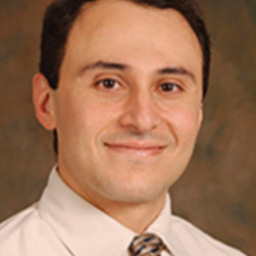
Mohamed Ali
Gut Microbiota and Their Xeno-Metabolites: Associations with MetabolicHealth of Women Undergoing Roux-En-Y Gastric Bypass
To understand the metabolic and microbiome differences between obese patients with metabolic syndrome and healthy obese patients.
2014

Sabrena Noria, MD
Determinates of Diabetes Remission after Bariatric Surgery and the Role of Gut Hormones and Aging
To evaluate the importance of the gut hormone response to age-associated diabetes remission following the two most prevalent bariatric surgery procedures performed today, laparoscopic RYGB (LRYGB) and laparoscopic sleeve gastrectomy (SG).
2006

Marc Bessler, MD
Effects of Obesity on Airway Inflammation and Asthma
2005

Daniel Cottam, MD
Oncologic effects of morbid obesity on apoptic markers and tumor growth factors before and after roux-en-y gastric bypass and adjustable gastric banding
2009

Daniel DeUgarte, MD
Impact of Metabolic/bariatric surgery on diet-induced childhood obesity: implication for long-term health and offspring metabolic phenotype
The goal was to investigate the impact of metabolic/bariatric surgery on childhood obesity using a rodent model. with respect to metabolic phenotype, impact on fatty liver disease, offspring obesity, and epigenetic alterations.
2015

Eric Hungness, MD
Effect of Laparoscopic Sleeve Gastrectomy on Esophagogastric Junction Distensibility
Obesity continues to be a major global healthcare challenge. Bariatric surgery has been proven as an effective and durable solution for those patients who meet the necessary criteria. In particular, the laparoscopic sleeve gastrectomy (LSG) has emerged as an attractive option for patients who elect to undergo bariatric surgery. However, reports have demonstrated that a proportion of patients who undergo LSG go on to develop post-operative gastroesophageal reflux disease (GERD) despite significant weight loss, which usually contributes to decreased GERD symptoms.
2007

Melissa Kalarchian, PhD
Optimizing Long-term Weight Control after Bariatric Surgery
2016

Tammy Kindel, MD
The effect of sleeve gastrectomy on obesity-insued heart failure in rats
We hypothesized that weight-loss independent increases in GLP-1R signaling after SG improves cardiac structure and function. Our first specific aim was to determine if SG improves cardiac morphology and function. The second aim was if SG increases cardiac GLP-1 receptor signaling and function.
2012

Joram Mul, MD
Melanocortin receptor-4 function is critical for energy homeostasis changes following vertical sleeve gastrectomy
To investigate whether melanocortin receptor-4 (MC4R) signaling is necessary to induce the beneficial effects following vertical sleeve gastrectomy (VSG). This is done using a unique rat model lacking MC4R function and by investigating the outcome of VSG in humans with changes in DNA coding for MC4R. Finally, we will also investigate whether MC4R- signaling is necessary to induce the beneficial effects following Roux-en-Y gastric bypass (RYGB).
2008

Mary Elizabeth Patti, MD
Hyperinsulinemic hypoglycemia following gastric bypass: pathophysiology and molecular mechanism
The pathophysiology of post-bypass hyperinsulinemic hypoglycemia syndrome remains incompletely understood. While excessive insulin secretion and higher incretin levels have been demonstrated, a causal role of the incretins has not been demonstrated. Thus, a central, unanswered question is whether excessive secretion of incretins or other intestinal peptides in the postprandial state contributes causally to excessive glucose-dependent insulin secretion (incretin-dependent), or whether there is an independent contribution of cell-autonomous pancreatic β-cell hyperfunction which develops over time as a result of the post-bypass metabolic environment.
2009

Michael Peters, MD
Autonomic nervous system function and novel determinants of glucose homeostasis following bariatric surgery
The objective of this study was to examine the effect of weight loss (6 months post gastric bypass surgery) on autonomic nerve fiber function and determinants of insulin sensitivity (i.e., osteocalcin) in humans.
2008

Drew Rideout, MD
Adiponectin improves steatohepatitis in obese rats after roux-en-y gastric bypass
Our project utilizes a rodent model of Roux-en-Y gastric bypass (RYGB) to further elucidate the pathogenesis of Non-Alcoholic Fatty Liver Disease (NAFLD). Our hypothesis is that obesity is associated with inflammatory changes in the liver that lead to chronic cellular stress, liver injury, as well as fibrosis, and that Roux-en-Y gastric bypass (RYGB) attenuates obesity-related hepatic abnormalities and inflammation through signaling between adiponectin and Kupffer cells.
2006

Stanley J. Rogers, MD
Nutrient absorption in morbidly obese patients before and after gastric bypass surgery
2006

Marzieh Salehi, MD
The role of glucagon like peptide-1 in glucose metabolism and weight loss following gastric bypass surgery
2007

David Sarwer, PhD
Improvements in Reproductive Status Following Bariatric Surgery
Obesity is associated with both increased rates of infertility and pregnancy-related complications. Obesity is strongly correlated with derangements of many hormones involved in ovulation and in the appropriate timing of the menstrual cycle. However, there is a paucity of data concerning the interactions between reproductive hormones, adipokines (hormones produced by adipose tissue) and ovulatory function in women with extreme obesity. In addition, very little is known about the specific changes related to reproduction that such patients may experience after bariatric surgery.
2009

Christopher Still, DO
Indentification of molecular markers for NASH
Our long-term objectives are to identify non-invasive blood markers for NASH. We will use a molecular approach to identify lead candidate biomarkers for the inflammatory stage of NASH, i.e., steatohepatitis. Gene expression profiling will be performed on pooled liver RNA samples from morbidly obese patients with steatohepatitis without fibrosis and morbidly obese patients with normal histology. Patients will be matched for age, gender, and major clinical features, such as co-morbid conditions, to the extent possible. Pools of RNA will consist of at least 50 patients. Candidate genes will then be tested in RNA obtained from peripheral blood mononuclear cells (PBMCs) from patients with various stages of NASH.
2013

Kimberly Steele, MD
Neurobiologic Alterations Induced by Bariatric Surgery: The Gut-Brain Axis and its Relationship to Weight Loss
We believe we will have enough data to submit several manuscripts and at least one RO1 NIH grant upon completion of this study. Including: Gut hormones and fMRI correlations (+ feeding behavior questionnaires) Gut hormones and cognitive status before and after bariatric surgery, fMRI structural imaging and cognition, fMRI functional connectivity in our participants before and after bariatric surgery, fMRI and microbiome correlations (possibly gut hormones as well) Gut hormones, fMRI and adipokines.
2018

Ali Aminian, MD, FACS, FAXMBS
Does Bariatric Surgery-Induced Shift in Gut Microbiome Provide Metabolic Benefit?
Is gut microbiome involved in improvement of diabetes and NAFLD/NASH after RYGB and SG surgeries? Can change in the microbiome after RYGB and SG protect against diabetes and NAFLD/NASH in susceptible animals?
2012

Stacy Brethauer, MD
Obesity-induced diabetes – searching for a cure through bariatric surgery
Utilizing an obese, diabetic rat model (Zucker zdf), the objective of the study is to evaluate glycemic changes, changes in duodenal proteomic profiles, and isolated islet responsiveness following gastric bypass, sham surgery, and pair feeding to bypass. A lean control group is also included in the study design. The objective of proteomics is to identify key changes in protein expression (specifically downregulation of specific proteins ) after gastric bypass compared to control groups.
2018

Jerry Dang, MD
Metabolic Surgery: The complex interplay between the gut microbiota, bile acids, L-cells and GLP-1
To understand the mechanism by which RYGB leads to improvement in glucose homeostasis both in the short and long term.
2014

Luke Funk, MD
Understanding Primary Care Physician Perspectives on Severe Obesity
The original objective of this study was to assess primary care physician perspectives regarding obesity as a disease and to understand how primary care physicians prioritize the management of multi-morbid patients with severe obesity.
2010

Aurora Pryor, MD
A structured early intervention in patients with predicted poor long-term outcome following laparoscopic Roux-en-Y gastric bypass/laparoscopic Sleeve Gastrectomy: a prospective randomized study.
To identify patients in the early post-operative period following laparoscopic Roux-en-Y gastric bypass/sleeve gastrectomy likely to fail to progressively lose weight in expected fashion and to institute intervention and assess for its efficacy”.
2011

William Raum, MD, PhD
Treatment of low metabolic rates and low lean body mass after bariatric surgery
Following bariatric surgery, metabolic rate decreases secondary to a decrease in sympathetic activity preventing optimal weight loss. The efficacy of ephedrine and caffeine to increase metabolic rate and subsequent weight loss will be measured in a randomized double blind placebo controlled trial.
2010

William Richards, MD
Vascular endothelium changes after bariatric surgery
In this pilot study we aimed to test the hypothesis that Bariatric surgery decreases autoantibodies and increases endothelial progenitor cells (EPCs) leading to improved vascular endothelial function. Since the roles of autoantibodies and EPCs in the setting of morbidly obese patients with type 2 DM are unknown, yet potentially represent critical determinants of vascular repair, two specific sub-aims will test the related hypotheses that: a. LRYGB surgery decreases the number of autoantibodies that lead to endothelial vasculopathy.
2017

Niketa Patel, PhD
RYGB Improves Insulin Resistance via Sirt-1 and Gas5
The liver plays a central role in obesity-induced insulin resistance and normalization of blood glucose in the immediate period following RYGB. We sought to understand the genetic pathways which underlie resolution of insulin resistance and blood glucose levels.
2017

Matthew Fourman, MD
Surface Electromyography (EMG) as a Measure of Surgeon Muscle Fatigue During Robotic and Laparoscopic Bariatric Surgical Procedures
To conduct original research comparing bariatric robotic procedures against bariatric laparoscopic bariatric procedures and the effect on surgeon fatigue and discomfort.
2021

Christine Finck, MD
Evaluation of the Increased Susceptibility of Obese Pediatric Patients to SARS CoV-2 Infection
To understand the role obesity contributes to COVID infection
ASMBS Integrated Health Research Grants
Funded by TREO Foundation
This grant is given to the health care provider who demonstrates excellence in bariatric surgery research, and whose research/presentation has valuable implications for the Integrated Health professional practicing in the field.
Current Grant Recipients


Dale Bond, PhD
Pain in Adversely Related to Weight Loss Maintenance Following Bariatric Surgery
Past Grant Recipients
2018-2019
Graham Thomas, PhD
2017
1st: Molly Orcutt, DO
2nd: William Gourash, PhD
2016
1st: Sarah Sabrudin, MD
2nd: Megan McVay, PhD
2015
1st: Melissa Kalarchian, PhD
2nd: Paul Lorentz, MS, RN, RD, BBA
2014
1st: James Mitchell, MD
2nd: Christopher Daigle, MD
2013
1st: Dale Bond, PhD
2nd: Jonathan Carter, MD
2012
1st: Wendy King, PhD
2nd: Conor Magee, MD
2011
1st: Paul Lorentz, MS, RN, RD
2nd: Nestor de la Cruz-Munoz, MD
ASMBS International Grant Program
Funded by TREO Foundation
The ASMBS has developed this International Grant to encourage, support and acknowledge surgeons from tier two and three countries who have overcome financial hurdles and acknowledges them with a monetary gift and waived registration to the ASMBS Annual Meeting.
Current Grant Recipients

Yuntao Nie, MD
Abstract: Nomogram for predicting anemia 1 year after bariatric surgery in chinese patients with obesity.

Zvi H. Perry, MD PhD
Abstract: Association between bariatric surgery and malignancy: A system review and meta-analysis, trends and conclusions.
Past Grant Recipients
2023
Dr. Nie, MD,
China
Dr. Zvi H. Perry, MD, PhD
Israel
2022-2023
Jerry Dang, MD, PhD
Canada
2019-2020
Catherine Tsai, MD
Taiwan
2018-2019
Mahir M Ozmen, MD
Turkey
2017-2018
Stephen Axer, MD
Sweden
2016-2017
Carlos Zerrweck Lopez
Mexico
2015-2016
Miguel Herrera, MD, PhD
Mexico
2014-2015
Elie Ramly, MD
Lebanon
2013-2014
Marcos A Berry
Chile
Bryan Woodward Community Grants
Funded by TREO Foundation
The Bryan Woodward Community Grant Program was founded to support local initiatives in addressing the obesity epidemic in cities that host a Walk from Obesity. Preference is given to those who participated in the Walk from Obesity. Grants are awarded in amounts of $5,000 or less.
Selected Grant Recipients
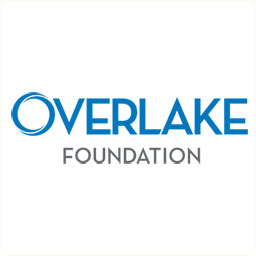
BodyWorks is a program for parents and caregivers of young adolescent girls that focuses on helping girls ages nine to thirteen years and their families create healthier lifestyles.
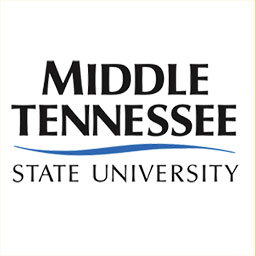
This program was designed to educate university students on the importance of combating obesity with walking and strength training, Young people at college age are in one of the biologically best times to instill a rational and positive lifestyle habit.
Past Grant Recipients
Children’s Center for Weight Management, Birmingham, AL.
Christus Schumpert Health System Foundation, Shreveport, LA.
The Faces of Hope – Richmond, VA.
Middle Tennessee State University Foundation, Nashville
Orvis Risner Elementary School, Edmond, OK.
The Overlake Hospital Foundation, Bellevue, WA.
Slidell, LA Memorial Hospital Foundation
YMCA of Greater Des Moines